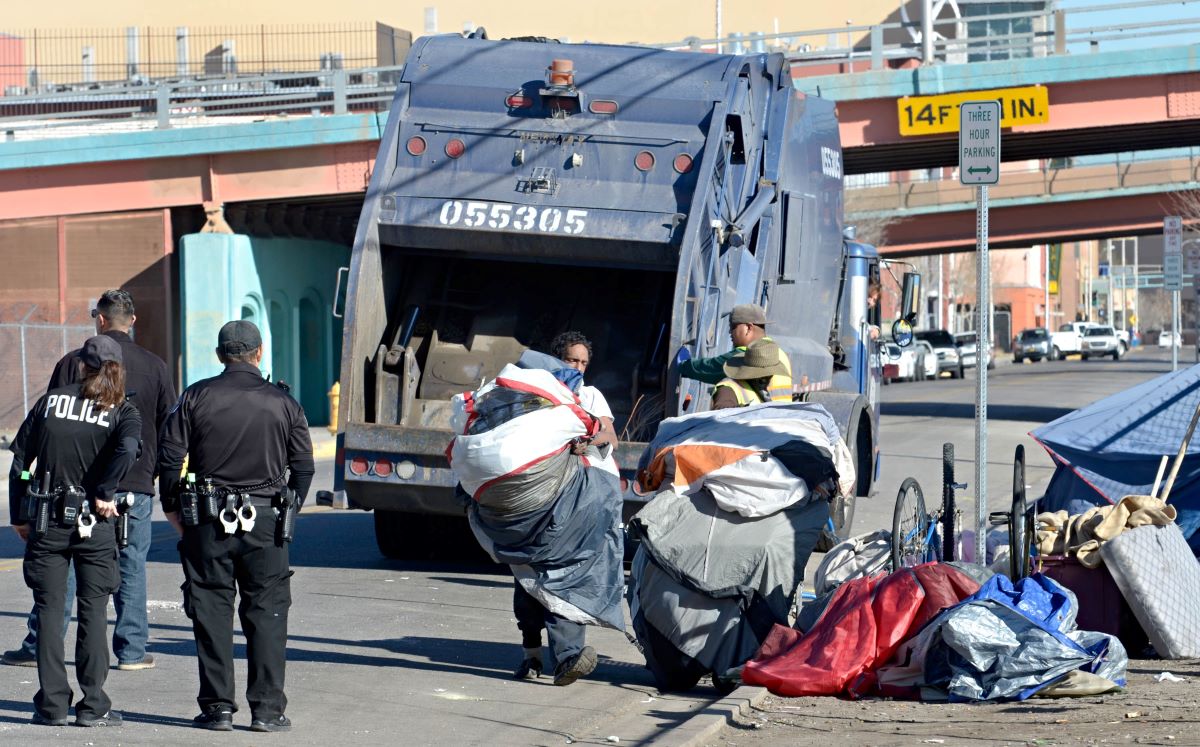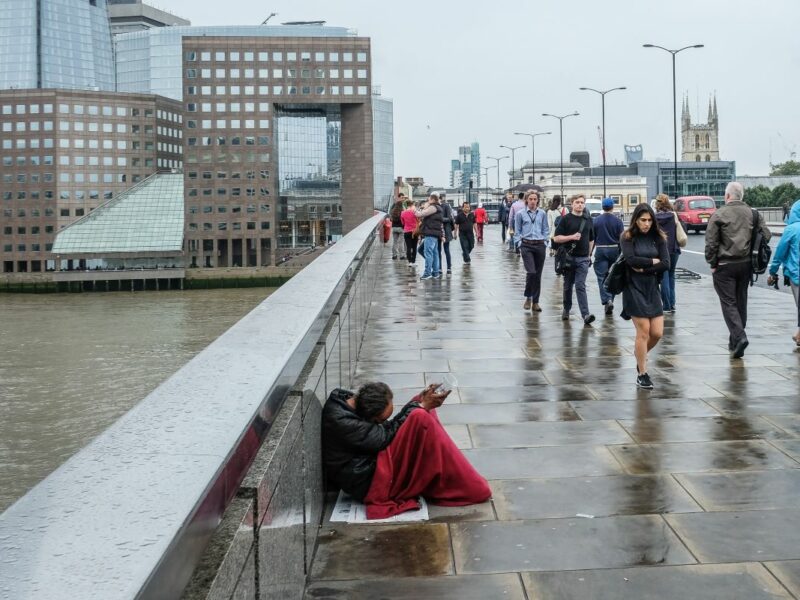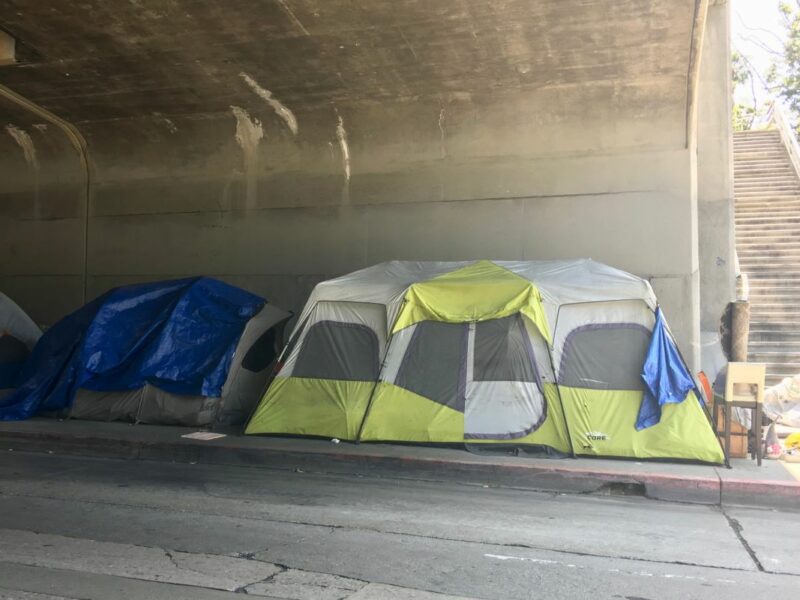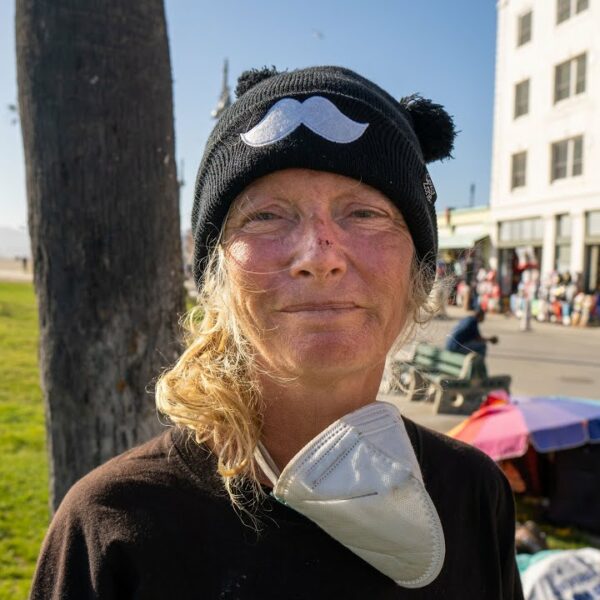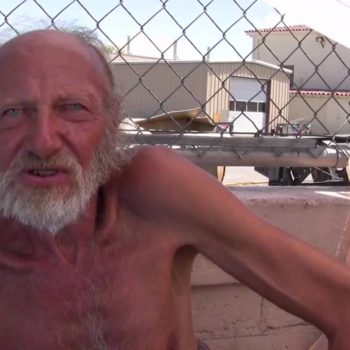Healthcare Providers Offer Insight on How Street Sweeps Impact the Health of People Experiencing Homelessness
A recent study found that street sweeps of homeless encampments may be harmful to the health of people experiencing homelessness.
The study is the first to examine the health impacts of street sweeps, which municipalities across the country regularly conduct as part of their efforts to move unhoused people out of public spaces. Cities like San Francisco, where the research for the study is based, conduct such sweeps on a daily or weekly basis, spending millions of dollars to push people experiencing homelessness out of the public’s view. These efforts, however, rarely result in housing for the people they affect.
The study utilized data from San Francisco from September 2019 to January 2020. Researchers recruited 39 healthcare providers who worked with people experiencing homelessness (PEH), asking them open-ended questions to gather data on how their clients’ health was affected by street sweeps.
According to the data, there was substantial evidence the sweeps caused not only material losses for PEH, including medications and mobility devices, but several downstream health impacts that would continue to afflict the community long after the sweep was done.
Sweeps Cause Loss of Material Possessions, Medications, Uproot Communities, Endanger Follow-up Care
When municipal agencies clear out encampments, they dispose of everything they find there—even though those things belong to someone. This includes survival gear, food, phones, money, personal mail, and even the ashes of loved ones.
“It’s like you come home from work and the house you’ve lived in for years has burned down, and you have nothing now,” said one outreach worker who responded to the questionnaire. “All your memories and everything that is near and dear to you is gone.”
And it’s not just sentimental items. Medical supplies are often lost in street sweeps, including prescriptions for opioid use disorder and chronic illnesses like hepatitis C and HIV. This is often next to impossible to replace, according to one doctor.
“Insurance companies… do not want to replace lost or stolen medications, and this often takes many phone calls, paperwork, extensive advocacy to get people their medications — often resulting in the patient not being on medication for weeks to even months,” the doctor said.
Going without medication presents other problems.
Individuals with substance abuse issues could go through withdrawal or relapse. Those with chronic conditions could experience exacerbations. People with acute infections who don’t finish their courses of antibiotics may develop antibiotic-resistant strains or spread the infection to others.
In addition to medications, sweeps can result in lost mobility devices like walkers, canes, and wheelchairs. These are even more difficult to replace, and loss of mobility can be devastating.
“Loss of mobility devices also may keep an individual from making it to see a provider, missing meals or food pantry opportunities, and other basic needs may go unmet,” an outreach worker said.
Impaired mobility also raises the risk of injuries and increases vulnerability to violence from others.
Unsurprisingly, health workers said the sweeps are incredibly traumatic for their unhoused patients.
“Sweeps keep patients/clients in crisis mode and add to their history of traumatic experiences,” one outreach worker wrote. “Sweeps are chronic traumatic events in their lives. Patients/clients worry about potential sweeps, [are] triggered by actual sweeps of invasion of their personal space and struggle with the aftermath of confiscated belongings.”
The instability caused by the sweeps—constantly having to replace necessities and search for a new place to stay, in addition to living in fear of the next sweep—results in depression and decreased hope.
“A person can end up feeling like it’s impossible to even try… many of my patients expect the world to be designed to make them fail,” one nurse said. “[T]he sweeps, which force people to give up a small piece of safety and stability they have created, reinforce this view. This can lead people to feeling like there is no point in trying to obtain stability.”
More directly, it makes it nearly impossible for providers to keep up with their patients. They can’t provide follow-up care to patients they can’t find, and patients lose appointment cards and phones in sweeps.
Providers Call for Trauma-Informed Care, More Housing, End to Sweeps
Nearly all of the providers interviewed were critical of street sweeps, calling them “inhumane and in violation of human rights.”
Instead, providers said the city should offer more housing and shelter options, using a “trauma-informed approach incorporating harm reduction principles,” including better training.
Other suggestions included:
- designated camping areas where services like water, waste disposal, electricity, and clean restrooms are provided
- storage facilities where unhoused people can safely keep their belongings
- mental health and substance use treatment services
- case management services
- reduction of barriers to accessing services
Sweeps, meanwhile, should be a thing of the past.
“Sweeps are not an effective component of the continuum of care, as sweeps create rapid cycles of displacement and reestablishment of encampments rather than lasting change,” wrote the director of a legal aid service program. “Just driving people from place to place and confiscating their belongings does nothing whatsoever to solve the problem.”







